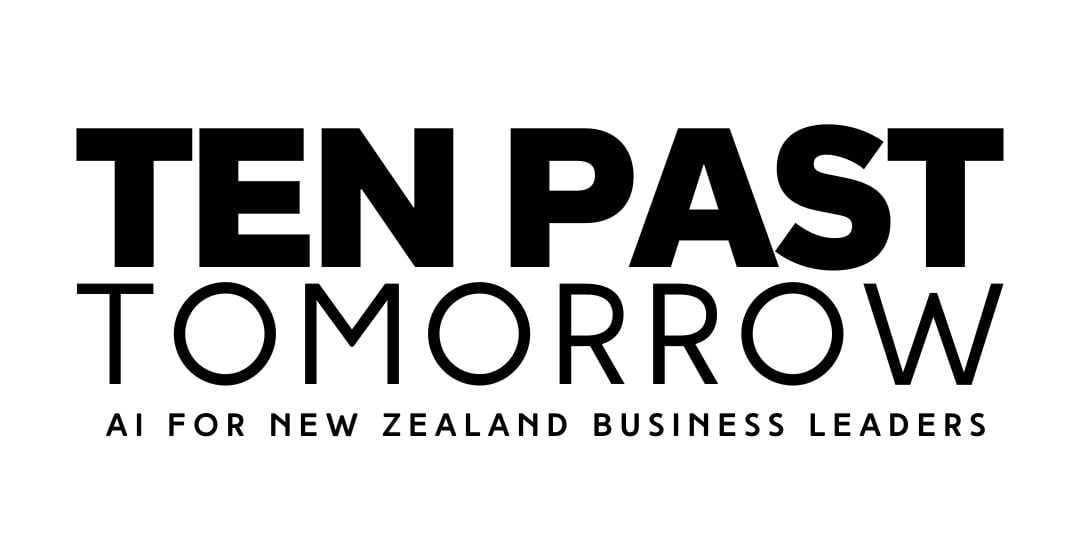How Will AI Impact Productivity for SMEs?
Having recently read Azeem Azhar's insightful article, "Will AI really improve productivity?", I was hooked by its examination of the potential impact of AI on productivity, especially how it could relate to our community of SME leaders.
Azhar's thoughts struck a chord with me, as they shed light on the many opportunities and challenges that AI presents.
In this article I’ve written a summary of Azhar’s thoughts. I distill the essential takeaways, and translate them to be relevant to SME leaders who are keen to understand how AI can reshape productivity and create new opportunities for growth.
The historical context of technological adoption
In his article, Azhar looks back to look forward, and takes us on a journey through a short history of tech adoption to understand how AI might impact productivity.
He starts by citing the electrical transformation, and the typewriter revolution of the late 1800s and early 1900s. Just as businesses needed time (decades) to first learn then adapt to those technologies, Azhar argues the same might be true for AI, (but probably won’t, for two key reasons).
Azhar notes that it took nearly three decades after the introduction of electricity in 1892 for productivity growth to increase significantly. Why did it take so long? Because factories had to be completely redesigned, and assembly lines needed to be built.
Similarly, in the era of IT revolution, computers became widespread in the 1970s and 1980s, paving the way for a productivity boost, but there was still a massive lag of 10 - 20 years until business’ workflows caught up to the potential the tech advancements held.
Internet penetration is another interesting case that Azhar examines. It took until internet usage exceeded 25% among American households until productivity growth surged. This took roughly a decade.
AI and productivity: The case for a different outcome
So, what might make AI different from the previous technological revolutions?
Why might it be adopted quicker, with a faster and heavier outcome for personal and business productivity?
According to Azhar, there are two main reasons why AI might have a more substantial, and faster impact on productivity:
-
Easy adoption: Unlike electricity or the internet, AI services can be implemented without building new infrastructure or relying on physical installations. Azhar highlights ChatGPT as an example, which rapidly spread to 100 million users in just 60 days.
-
Business readiness: Decades of business process reengineering, outsourcing, and digitization have primed companies to embrace AI. Firms are now better equipped to make changes to their workflows, making the integration of AI tools like language models much smoother.
I think these factors are particularly important for SMEs.
Easy adoption and business readiness mean that we can start leveraging AI to streamline our operations and enhance customer experiences now, without heavy investments in infrastructure or overhauling our entire business models.
There is already a proliferation of off-the-shelf AI tools and platforms which we can take advantage of, and in use cases where off-the-shelf solutions aren’t (yet) available, there is a already mushroom-cloud of talented developer communities ballooning into existence to help us build bespoke AI solutions for our SME businesses.
How do we prepare for the AI Revolution?
In translating Azhar’s main themes into actionable ideas relevant to us as SME business leaders, we can infer some steps to take:
-
Educate ourselves and our teams about AI's potential applications and limitations. Encourage a culture of curiosity and learning.
-
Identify areas in our businesses where AI could make a difference. Look for tasks that are repetitive, time-consuming, or require significant data analysis.
-
Start small and scale up. Implement AI in one aspect of your business and evaluate the results before expanding to other areas.
Conclusion
Azeem Azhar's article "Will AI really improve productivity?" offers valuable insights into the potential impact of AI on productivity.
While history has shown that it can take significant time lags for new technologies to affect productivity growth, AI's intuitive adoption and business readiness means the deployment rate will likely be much faster than previous technological revolutions we’ve witnessed across history.
This makes the AI revolution especially relevant for SMEs.
To capitalize on these opportunities, it's crucial to educate yourself and your teams about AI, identify areas where it could make a difference, and implement AI solutions gradually.
By staying informed, proactive, and open-minded, let’s position our SMEs at the forefront of the AI revolution and make the most of the productivity boost it promises.






